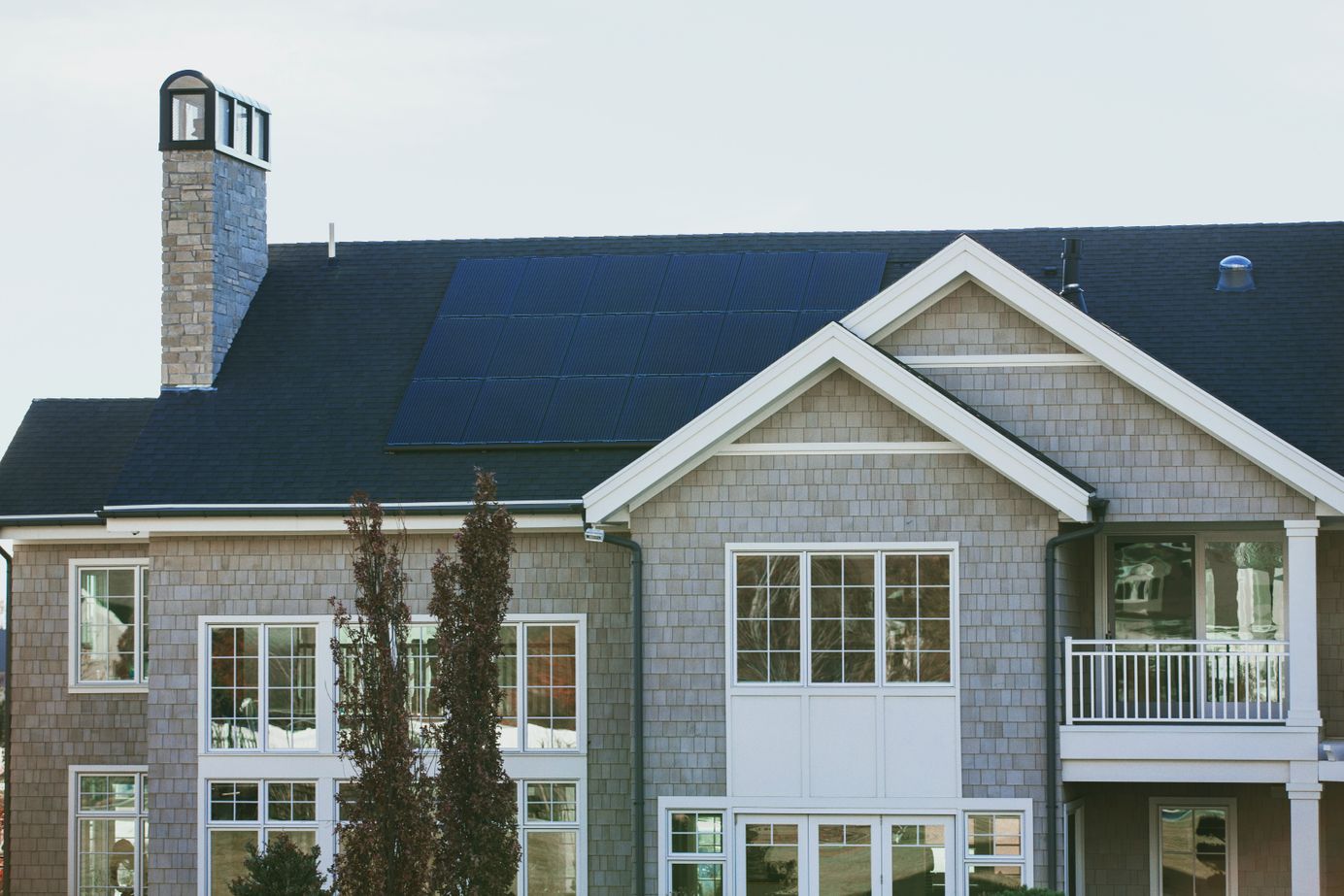
Should I Sell My Rental Property?
Whether your rentals are thriving or floundering, deciding to sell shouldn’t be based on just one set of criteria.
Some landlords have thriving rentals and can’t imagine ever selling them. Others are just waiting for the right conditions. Whatever your situation, deciding whether or not to sell a rental property shouldn’t be based on just one set of criteria.
Here are some factors to take into consideration while contemplating this decision.
Underwhelming Performance
If your rental property is underperforming, selling it may be the quickest solution to making a profit. In order to determine performance, landlords should be keeping a close eye on their monthly cash flow and annual rental yield.
Related: BRRRR Method for Real Estate Investing Beginners
Rental Yield
Rental yield is a percentage that tells you the rate of return on your investment property. The gross yield and the net yield are calculated differently.
To calculate the gross rental yield, figure out the total cost of the property, including purchase price and closing fees. Next, determine the amount of rent you will receive annually. Divide the rent amount by the property cost, multiply by 100, and you have your gross rental yield.
For example, for the sake of simplicity, let’s say you bought a property for $100,000, all closing costs included. Your annual rental income from this property is $10,000. If we follow the formula below, your gross rental yield is 10%.
$10,000 rental income / $100,000 purchase cost = 10% gross rental yield
The net yield factors in monthly expenses, giving you a more accurate view of your profits. To calculate the net rental yield, figure out your total annual expenses. This includes mortgage payments, repairs, renovations, property taxes, and any other expenses associated with the property. Subtract these expenses from your annual rental income. Divide the result by your total property cost, multiply by 100, and you have your net rental yield.
To continue the example above, the property you bought for $100,000 had $2,000 in expenses last year. From your annual rental income of $10,000, we subtract the expenses and are left with $8,000. Following the formula below, your net rental yield is 8%.
($10,000 rental income - $2,000 in expenses) / $100,000 purchase cost = 8% net rental yield
Is there an ideal net rental yield? Some investors would tell you yes, but rental yield is only one factor. Potential investors also need to consider the area in which the property is located. Is this an area that promises capital growth? Or will the market lay stagnant for years to come? Another consideration is repairs and maintenance. If a property requires more upkeep than anticipated, these unforeseen costs could produce negative cash flow.
Cash Flow
Positive cash flow means the landlord is earning more money than they spend on the mortgage, taxes, insurance, utilities, HOA fees, repairs, and upkeep of the property. Conversely, negative cash flow means the landlord is spending more than they earn.
If cash flow has been negative for several months, there are a couple of things to keep in mind. One is whether or not to raise the rent. Look at the market rates and make sure your rental is comparable. Some landlords let their properties rent out for the same price every year despite increases in property taxes and other expenses. Tenants generally expect small increases in rent each year. Don’t leave money on the table by not doing the necessary research to figure out current market rates. Even making a small increase could make a huge difference in your overall cash flow.
Don’t leave money on the table by not doing the necessary research to figure out current market rates.
Another factor to consider when looking at negative cash flow is to determine the source of the expenses. Did you just make significant upgrades to the property? Are you choosing the most economical materials? Most landlords will choose cheaper materials for their rental property than they will for their own homes, due to increased wear and tear from multiple tenants over the course of several years. If you’re looking to recuperate expenses as a tax deduction, remember to patch and repair wherever possible so that you can deduct the entire cost of the repair for the year. Upgrades and improvements (like new appliances or new flooring) will have to be depreciated over the course of several years.
Sometimes, when it rains, it pours. Did the water heater break just after some tree roots burst an underground pipe? Did the washing machine and dishwasher come to the end of their life cycle at the same time? It’s impossible to predict exactly when an appliance will break down or when you’ll need to make repairs. When managing an investment property, there can be certain months that are more overwhelming than others in terms of repairs. Keep in mind that once these repairs are made, they will now last for years to come. Real estate investing isn’t a short sprint. There will always be setbacks and unexpected costs. Don’t confuse a bad few months with an underperforming property!
Don’t confuse a bad few months with an underperforming property!
If you have a few bad months, take a look at your projected income and see how long it will take you to climb out of the hole. The amount of time it will take will give you better perspective on whether or not to sell your rental property.
Need the Funds
Some landlords will consider selling their rental property when they need the funds immediately. This could come from a child entering college, a series of expensive medical bills, the need to move out of state, affording a down payment on a new home, or wanting to have some funds for retirement.
Landlords considering selling their property would do well to take a hard look at the numbers. For properties with significant rental yield and positive cash flow, it may make more sense to refinance and keep it as a rental.
It’s important to remember there is a difference between needing to sell and thinking you should sell. If you truly need the money immediately, then selling may be your only option. Thinking about repairs and cash flow are irrelevant.
If, on the other hand, you are just looking to see what would make the most financial sense, then you can weigh the different options. Take a look at the market, at your rental yield and cash flow, and how much you could get now versus in a few years.
The Market Is Right
If you’re thinking of selling in a cooling market, you may have an opportunity to get out before demand for buying homes drops. If, on the other hand, your property value has appreciated over the last few years and the market looks like it will continue to expand, it may make more sense to hold onto the property and sell it in the future. Or you could sell now with the confidence that you will get a good price.
The market is hard to predict and shouldn’t be the only factor contributing to your decision. However, you should still be aware of market trends and have a general knowledge about what homes like yours in your area are selling for.
Time to Move On
Being a landlord isn’t an easy job. And not everyone dreams of being a landlord forever. For some, all it takes it one bad batch of tenants to make them want to sell and move on to more passive investments. Others start out with rental properties only to learn that being a landlord isn’t for them. In this case, selling the property would make sense.
Before you make the final decision to sell, think about how managing rental tasks could be made easier. Some owners will choose to hire a property manager or use a free rental management platform like Tellus to automate some of the more menial tasks. Having the right tools can free up your time and make investing in rental properties enjoyable again.
Taxes
Selling your property can have different effects on your reportable income depending on how long you’ve owned it. If you have owned the property for less than a year and choose to sell, any funds gained from the sale will be added to your taxable income. If, however, you have owned the property for a year or longer, any funds gained from the sale will be taxed depending on your tax bracket, either at 0%, 15%, or 20%.
Final Word
Being a landlord isn’t always something that will make you instant profits. It’s a long haul full of ups and downs, but you can minimize unpleasant surprises like vacancies and unexpected repairs by keeping a healthy reserve fund. Knowing you can weather a few bad months will help you stay in the rental business longer.
Deciding whether or not to sell a rental property isn’t something you can determine overnight. Even if it is not performing as well as you hoped, it’s a good idea to wait at least a year to gather more data about your monthly expenses as well as to ensure you aren’t taxed on the full percentage of the sale price. Keep an eye on the market, your rental yield, and your cash flow to see if selling at this point is what will make the most sense and give you the highest profit.
Before you make a final decision to sell, see if technology can help ease the burden of rental management. The Tellus superapp can help automate tasks to save you time and money.








